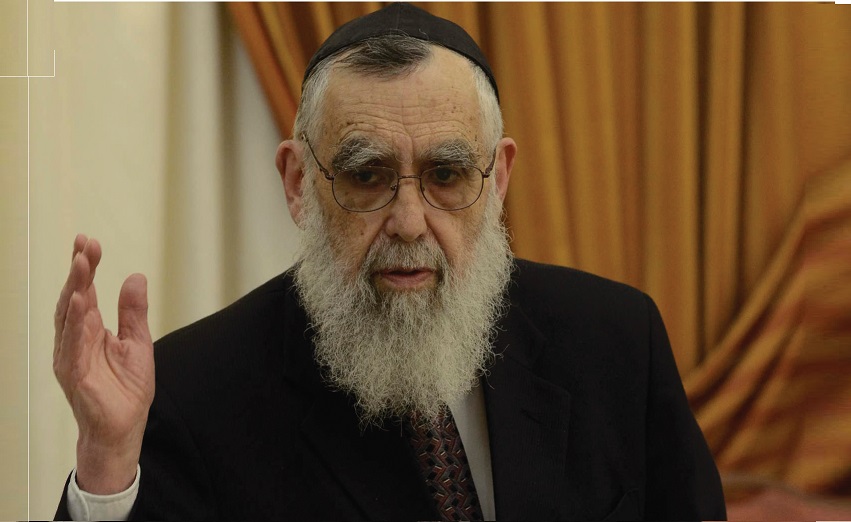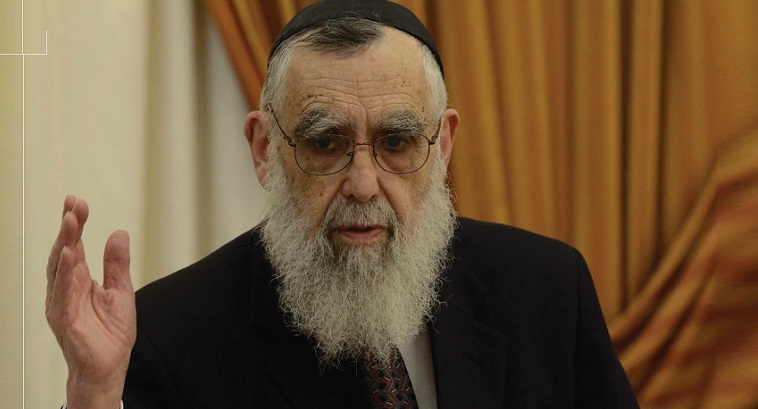An Affinity to Infinity

Beruchim anachnu, we are all blessed to be part of the adventure of being a Jew
ASthe days of judgment of the Yamim Noraim recede into the background and we embark on our daily routines, this column proffers a follow-up and closer look at a key Hebrew word in our daily, year-round prayers.
Hebrew is more than a language. It is an arena for the continuum of high adventure, containing deep valleys and staggering peaks, fascinating crevices, hidden nooks and crannies, and surprising byways. No wonder, since this is G-d’s own language — which is why it is called Lashon Hakodesh, “the holy tongue.”
The word baruch is a graphic example of this. Though it is often mumbled, frequently mangled, and regularly ignored, it is one of the richest and most profound words in Lashon Hakodesh.
Most people translate baruch as “blessed”: as in, “Blessed art Thou.” This is acceptable at the basic level, but there is much more. Note how many concepts are hidden in that one little word.
Below the surface, you find berech, which means “knee.” When we say baruch, we are really saying “Thou art the One to Whom one kneels” or “the kneeled-to One.” This is an expression of subservience, submission, and deference before the Creator. I am mortal, Thou art immortal. I bend my will to Thy will.
Dig deeper and you discover breichah, which means wellspring, or source: Thou art the source of all blessing, the fount and wellspring of the world, my personal Creator and universal Master of all. If I ever imagined that I was in control or in charge, the many baruch’s that are recited each day remind me that Atah, Thou art the Master and not I.
The concept of wellspring has its own tributaries and ramifications. As we follow them, we see that just as a subterranean wellspring, though unseen by us, never ceases its flow, so may Thy goodness toward us, though often unseen and unappreciated, also never cease. (See Shu”t Rashba I:423.)
Others, such as Rav Chaim Volozhiner in his Nefesh HaChaim (II:2), maintain that it is a plea that G-d intensify His relationship with us and increase His mercy toward us, as in Shemos 23:25: “u’veirach es lachmecha v’es meimecha — He will bless ( increase) thy bread and thy waters…” Similarly, baruch Atah means “May Thy connection with us be increased and intensified.”
All this is concealed in that one word. And then, having acknowledged our subservience to Him Who is the master and owner of all, and for Whose mercy and lovingkindness we appeal, suddenly we find ourselves saying Atah, as if we were standing in close proximity to Him, directly in front of Him, as if He were our close friend and companion instead of Creator, Benefactor, Source, and Master of all. In the midst of every brachah, we remind ourselves of Whom we are addressing — and the initial second person disappears and is replaced by the deferential third person. Thus, as we noted in an earlier column, we find the stunning paradox that in one breath, almost simultaneously, every baruch Atah pivots from awe and distance to familiarity and closeness.
But there is an even more stunning paradox, and that is that the Creator and Master actually invites us — lowly, mortal, short-lived man, formed from the dust, who will return to the dust — to reach out to Him, and beckons us to call on Him. In the history of the world, has a powerful king or prime minister or president ever sincerely pleaded for his subjects to connect with him and contact him?
Thus it turns out that we are also the subject of baruch. We are not kneeled to. We are not the master. We are not the source of all good. All these are G-d’s alone. But one quality we do share with Him. We are profoundly blessed, because our Creator loves us, waits for us, and seeks us out — because, as the embodiment of all blessing and the incarnation of all goodness, His overflowing aspiration is to share this goodness with us, His beloved creatures.
Beruchim anachnu, we are all blessed to be part of the adventure of being a Jew. And blessed to know Lashon Hakodesh, the only language in the world that has an affinity to Infinity.
(Originally featured in Mishpacha, Issue 934)
Oops! We could not locate your form.



